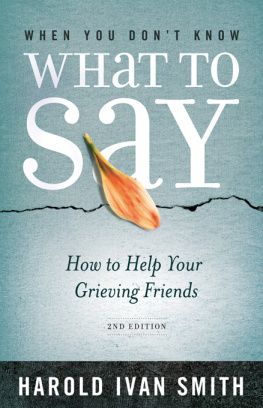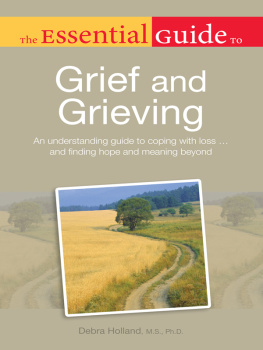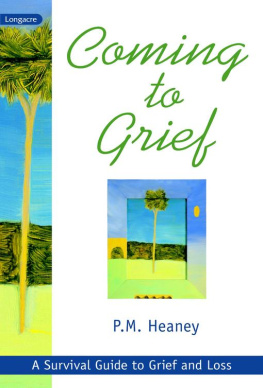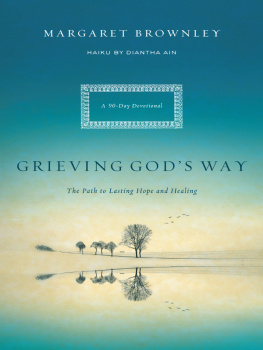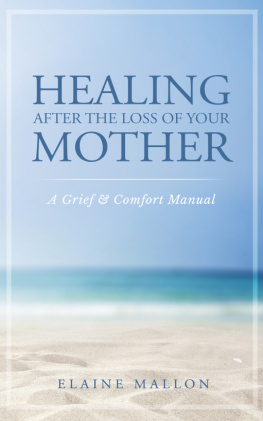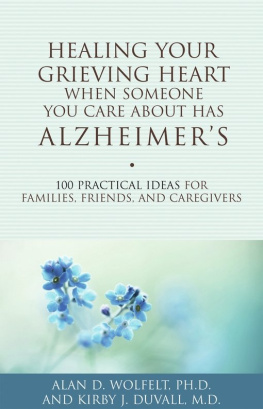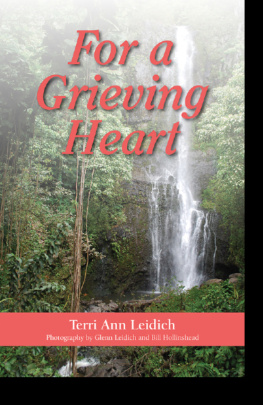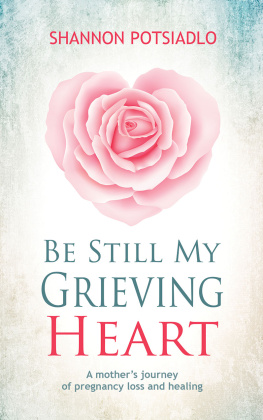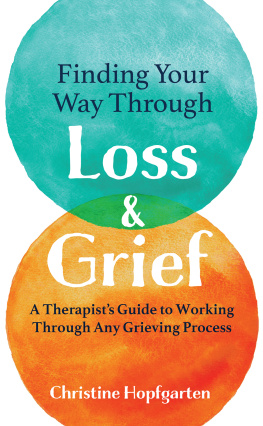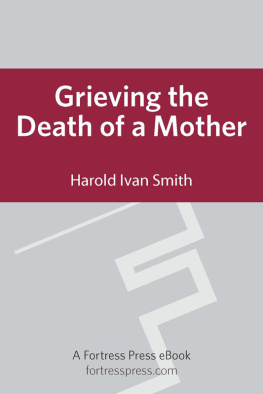

Copyright 2006, 2012
By Harold Ivan Smith and
Beacon Hill Press of Kansas City
2012 eISBN 978-0-8341-2867-5
Printed in the
United States of America
Cover Design: Lindsey Rohner
Inside Design: Sharon Page
All Scripture quotations, unless otherwise indicated, are taken from the Holy Bible, New International Version (NIV). Copyright 1973, 1978, 1984 by International Bible Society. Used by permission of Zondervan Publishing House. All rights reserved.
Library of Congress Cataloging-in-Publication Data
Smith, Harold Ivan, 1947
When you dont know what to say : how to help your grieving friends / Harold Ivan Smith. 2nd ed.
p. cm.
Includes bibliographical references (p. ).
ISBN 978-0-8341-2799-9 (pbk.)
1. Church work with the bereaved. 2. BereavementReligious aspectsChristianity. I. Title.
BV4330.S577 2012
248.8'66dc23
2011039096
DEDICATION
Lets hear it for the ladies of the church
(these days the folks from the church)
who cook and bake and clean and show up.
Who care and comfort.
They come not with answers and solutions
but with the gift of presence.
They make a difference.
There are no banquets in their honor, no plaques,
no certificates of appreciation,
but they bring a smile to Gods face.
Thank you.
CONTENTS
A GRIEF SHARERS PRAYER
Lord, take me where you want me to go;
Let me meet whom you want me to meet;
Tell me what you want me to say, and
Keep me from getting in your way!
Father Mychal Judge
Death Certificate Number One, Ground Zero
New York City Fire Department chaplain who died at Ground Zero September 11, 2001. While administering last rites to a critically injured person, Judge removed his fire helmet so the dying person could see his face. He was struck in the head by a flying object. Firemen carried him to their fire hall.
Blessed are the helpers who are uniquely themselves.
Blessed are the helpers who weigh words carefully and avoid clichs and platitudes.
Blessed are the helpers who give grievers permission to feel pain and to cry and to ask questions.
Blessed are the helpers who willingly receive the lament and the stories of the bereaving.
Blessed are the helpers whose hands are always ready to applaud the baby steps of the bereaving.
Blessed are the helpers who show up and anticipate what needs to be done.
Blessed are the helpers who send cards and notesand keep on sending them.
Blessed are the helpers who show love tangibly by sending flowers or donating to designated charities.
Blessed are the helpers who attend the rituals.
Blessed are the helpers who pray.
Blessed are helpers who make sure grievers eat and who eat with grievers.
Blessed are helpers who familiarize themselves with what it means to grieve.
Blessed are the helpers who can confidently recommend skilled counselors and support groups and books.
Blessed are the helpers who visit cemeteries.
Blessed are the helpers who remember anniversaries.
Blessed are the helpers who celebrate Memorial Day.
Blessed are the helpers who notice children.
Blessed are the grief sharers who give their grief a voice.
Blessed are the helpers who remember that grief sharing is vital kingdom work.
Responding
with Your
WISE WORDS FOR LOANING
We can walk up to any realityno matter what it is
knowing that God is already there waiting to
anoint it with the oil of his blessing.
Carolyn Lunn
At some of the darkest moments of my life, some
people I thought of as friends deserted mesome
because they cared about me and it hurt them to
see me in pain; others because I reminded them of
their own vulnerability, and that was more than
they could handle. But real friends overcame their
discomfort and came to sit with me. If they had no
words to make me feel better, they sat in silence
(much better than saying, Youll get over it, or
Its not so bad; others have it worse), and I loved
them for it.
Harold Kushner, Living a Life That Matters, 123-24
We learn what to say, in part, by listening to what
is being said. If we let the person tell us where he
or she is, we will soon learn how best to respond.
Thomas Oden, Pastoral Theology, 299
Blessed are those who mourn,
For they will be comforted.
Matt. 5:4
Eight-year-old Becky was late getting home from her friend Christines house. Again, and even though her father had warned, Becky, the next time youre late, youre going to be in big trouble.
When Becky walked in, her father demanded, I told you to be home at five! What do you have to say for yourself?
Well, Becky began, I was playing with Christina, and she dropped her doll and broke it
The father interrupted: And I suppose you were helping her pick up the pieces.
Oh, no, Daddy. I was helping her cry.
This old story captures the role of the helpers in responding to the bereaving. To be bereaved is to be reaved. Reave is a wonderful old English word that means to break, to plunder, to rob, to tear apart, or to deprive one of something. Thus, the griever can say, I am reaved and be precise.
Many bereaved do believe their world has been torn apart, and in reality it has been forever changed. Many bereaved believe their lives, memories, and futures have been plundered.
Many bereaved believe they and their families have been torn apart.
Many bereaved, as they age, believe they have been robbed of emotional companions. We can replace lost objects, but we cant replace children, spouses, siblings, friends, and a shared future with them.
The grief sharers role is to help them grieve.
Penelope Wilcock illustrated: Our response to the helplessness of others is to take rescuing action, to be the cavalry coming over the hill (Spiritual Care ofDying and Bereaved People, 4).
How can we be the cavalry for someone going through grief?
First of all, grief sharers must ask, Am I willing to be changed by this experience? Gerald Sittser, whose wife, mother, and daughter were killed in an automobile crash, writes that Good comfort requires empathy, forces adjustments, and sometimes mandates huge sacrifices. Comforters must be prepared to let the pain of another become their own and so let it transform them. They will never be the same again after that decision (Gerald Sittser, A Grace Disguised, 159).
In Judaism, temple or synagogue members who care for the body, especially the ritual washing, after a death are called the Chevra Kadisha, or Holy Society. These people are always on call, because most Jews are buried within 24 hours.
As a Christian, you, too, can be on call to opportunities for intentional sharing. Through your presence, you can make a differenceeven when you dont know what to say or do.
No one should have to walk alone through the valley of deaths shadow. When Jobs three friends, Eliphaz the Temanite, Bildad the Shuhite, and Zopar the Naamathite, heard about all the troubles that had come upon him, they set out from their homes and met together by agreement to go and sympathize with him and comfort him (Job 2:11).
Like Jobs friends, we can walk
Next page
